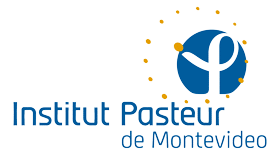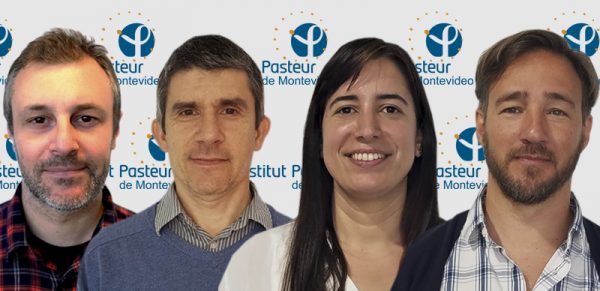For the second consecutive year, Uruguayan researchers from the Institut Pasteur de Montevideo and the University of the Republic were chosen in an international call promoted by the Chan Zuckerberg Initiative (CZI), led by Priscilla Chan and Mark Zuckerberg, in the area of bioimaging. This year, 17 projects from 31 countries received US$ 4.1 million dollars. Four projects belong to Uruguayan researchers whose financing is around US $ 1 million.
The call was announced by the CZI, a foundation led by Priscilla Chan and Mark Zuckerberg, which since 2015 has allocated millions of dollars to finance the development of bioimaging as an essential area for the development of better diagnoses, the treatment of diseases or their cure.
Bioimaging is a discipline based on the use of technology that is key to the development of science, as it encompasses the set of techniques used to obtain and analyze images of organisms and tissues, which allows them to understand biological processes and foundations.
For this reason, CZI began the Expanding Global Access to Bioimaging program, aimed at financing proposals in bioimaging from Africa, Latin America and the Caribbean, and former Soviet countries. This year, the program opened two categories: creation of networks or communities and development of programs to strengthen the capacities of bioimaging centers.
Building a collaborative network to advance bioimaging in Latin America
In the category of networking, the Uruguayan initiative “Building a collaborative network to advance bioimaging in Latin America” will receive US$ 300,000 for three years to consolidate and develop the Latin American bioimaging network —Latin American Bioimaging (LABI)— thus strengthening research biomedical of the country and the region.
Coordinated by Andrés Kamaid, researcher at the Institut Pasteur de Montevideo, together with Kirdare Miranda (Federal University of Rio de Janeiro) and Lia Pietrasanta (University of Buenos Aires), the network will help train scientists in different bioimaging techniques.It also will finance training trips or visits to centers abroad, regional courses and mobility of scholarship holders, and it will develop a database of bioimaging resources that exist in Latin America.
“Our project aims to increase regional capabilities in an extremely important area of science, which is rapidly expanding globally,” said Kamaid.
Building Bioimaging Capacity in South America
Also within the network and community development program, CZI awarded the Institut Pasteur de Montevideo as one of the nodes of the South American network Center for Structural Biology of Mercosur(CeBEM). The proposal includes a dozen Latin American centers that constitute CeBEM since 2008, and is co-led by Alejandro Buschiazzo at IPMontevideo, together with Natalia Lisa (Instituto de Biología Celular y Molecular, Rosario, Argentina) and Rodrigo Portugal (Laboratorio Nacional de Nanotecnología, Campinas, Brazil).
This project will work towards associating Structural Biology and Bioimaging, supporting scientists and students in carrying out training internships in the region and beyond, as well as organizing advanced courses. A joint work will be carried out with decision-makers to identify available and missing technologies to develop this discipline. Finally, research infrastructure operating procedures will be proposed, in order to promote the advancement of Integrative Bioimaging.
Expanding Access to Advanced Bioimaging Technology in Latin America
In the other funding category, CZI awarded “Expanding Access to Advanced Bioimaging Technology in Latin America”, led by Leonel Malacrida, Marcela Díaz and also Kamaid, all members of the Advanced Bioimaging Unit, a mixed unit between the IP Montevideo and the Hospital de Clínicas (University of the Republic).
This project will receive US$ 200,000 for three years to hire personnel in the area of optics and engineering to promote the construction in the country of a cutting-edge microscope, train scientists in microscopy and associated technologies, and transform the UBA as a training node for trainers in microscopy for the entire region.
“This is a great support to consolidate the UBA, strengthen human capacities in areas not fully developed such as engineering and optical physics, which will be of great help for the development of unique instrumentation in the region,” said Malacrida.
It is the second time that Uruguayan projects have been selected by CZI, after at the end of 2020 Dr. Malacrida was announced as the only South American to receive a fund of US $ 370,000 for five years in the Imaging Scientist program from CZI.
In 2021, Uruguay also won a fourth project led by researchers Federico Lecumberry and Rosana Shapiro (IMAGINA), from the University of the Republic, for the consolidation and development of a program focused on biomedical image processing.
About the Chan Zuckerberg Initiative
The Chan Zuckerberg Initiative was founded in 2015 to help solve some of society’s toughest challenges — from eradicating disease and improving education, to addressing the needs of our local communities. Our mission is to build a more inclusive, just, and healthy future for everyone. For more information, please visit www.chanzuckerberg.com.
Photo, from left to right: Leonel Malacrida, Alejandro Buschiazzo, Marcela Díaz and Andrés Kamaid.


